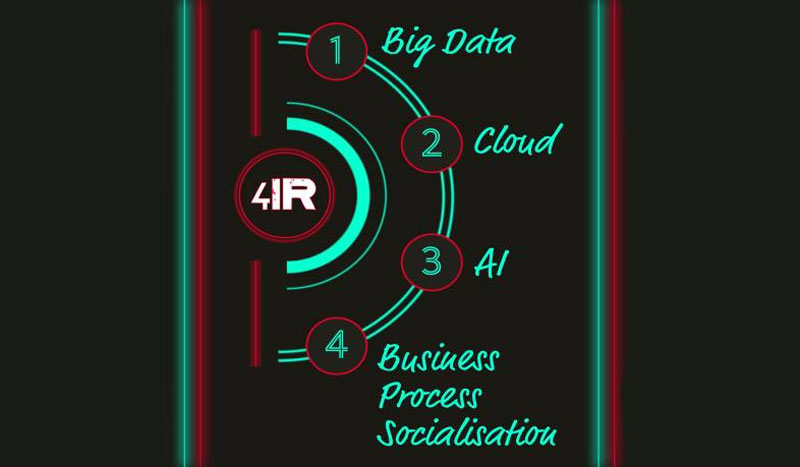With the Fourth Industrial Revolution (4IR) gaining momentum, companies must prepare themselves to do things differently.
Richard Firth, CEO of MIP Holdings
“Typical innovation approaches will no longer be enough as we move into the digital future. Only companies that master the profound technological challenges 4IR is creating will remain relevant – and they need to do more than merely adopt technologies because their competitors are doing so. Businesses looking to survive, and thrive, need to master the technological challenges and transform them into opportunities.”
The World Economic Forum’s Future of Jobs Report predicts that leaders and organisations will need to understand and learn to harness four major technologies – 5G, cloud technology, big data and AI. Firth points out that the biggest challenge for businesses today is handling the emerging business models and evolving customer expectations created by technology leaders.
We are living in a world where unforeseen technological innovation is the new normal, and companies are grappling with how to best use new technologies such as AI and big data to create real value. They are also struggling to balance product innovation against business model innovation. At the same time, customers are demanding real-time, personalised experiences. Consumers can no longer be viewed as the end users of products, but must be seen as active participants in the supply chain. As a result, any new technology must be implemented as part of a strategic decision to solve today – and tomorrow’s – customer demands.
Richard Firth, CEO of MIP Holdings
“We are already seeing applications of artificial intelligence in supply chain management and customer service interactions, but the technology is still in its infancy, relatively speaking, and we have a long way to go before it delivers the value businesses and customers expect from it. That being said, companies that embrace AI and integrate it into every element of their business and technology strategies today, are the ones that will be leading the future.”
Firth adds that developing and nurturing a future-focused workforce is also essential. “Investments in technology should be synchronised with investments into people. Your people are going to use and interact with these technologies on a daily basis, so they should have the appropriate skills and knowledge to ensure that any transformation initiatives a company undertakes is successful. If a company only focuses on the technology, it is missing an opportunity to close critical skills gaps and future-proof itself.”
Almost all organisations in the future will be digital, and 60% of all global GDP will come from digital sources by 2022, according to the World Economic Forum. In light of this, Firth says that companies not keeping on top of emerging technologies and understanding how to harness their capabilities may as well already close their doors. “The coming decade will be a pivotal time for organisations to make themselves 4IR-ready. The successful businesses of the future will be the ones that can take decisions at light speed, and act on their insights equally fast,” he concludes.











